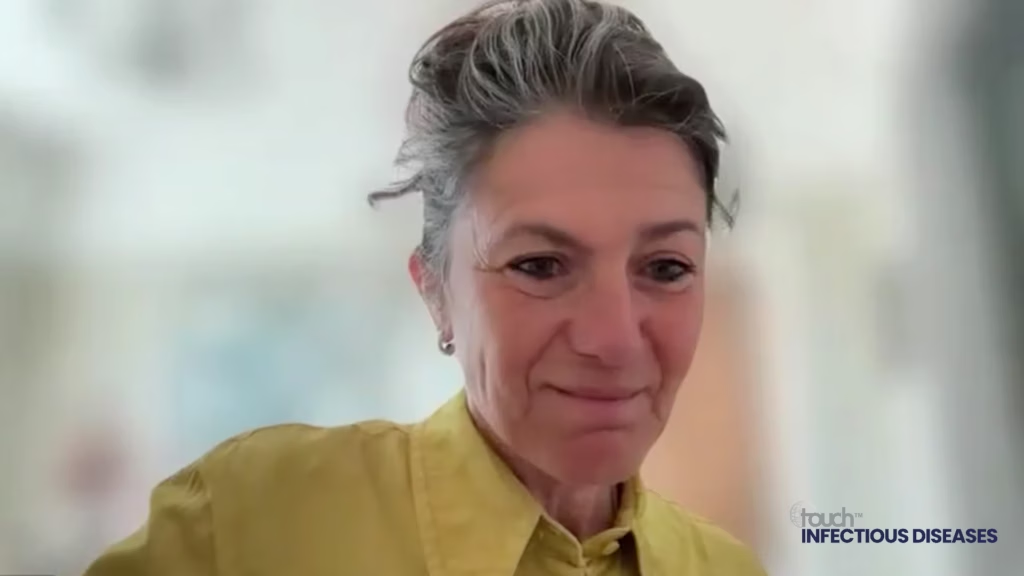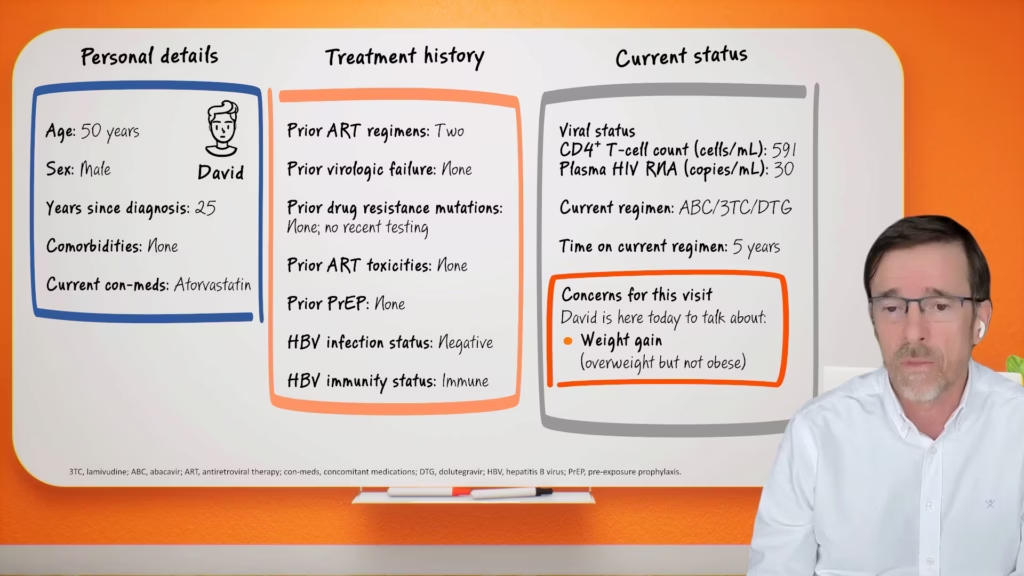Search Results
Showing Results for HIV

"Even with intensive support, short-cycle therapy did not match the effectiveness of daily treatment in adolescents." - Dr Adeodata R. Kekitiinwa Short-cycle therapy (SCT) has previously shown promise in maintaining viral suppression among young people living with HIV. In ...

Despite the availability of curative therapies, hepatitis C virus (HCV) remains a global health challenge.
In this Q&A, you will learn:
- Current HCV treatment standards and remaining barriers to universal access.
- Practical strategies to support adherence and follow-up in underserved groups.
- Key considerations when treating patients with HIV co-infection or cirrhosis.
- The importance of prevention and the role of vaccines in future HCV control.

Physician burnout is at a critical point. In this episode, Nicky speaks with Dr Alfred Atanda about why so many physicians are burning out and what can be done to change the trend. From personal experience to system-wide solutions, Dr Atanda shares valuable insights on improving physician well-being and building a more effective healthcare culture.

The RIO study tested whether broadly neutralizing antibodies could safely replace daily HIV therapy. In a rigorously designed trial, 75% of participants maintained viral suppression for 20 weeks after stopping antiretrovirals. The findings mark a pivotal step toward potential HIV remission and more flexible treatment strategies.

In this episode, we explore the future of continuing medical education (CME) with the team behind touchIME. Hannah Fisher and Matthew Goodwin share insights into global and US trends, the importance of patient inclusivity and how educational outcomes are evolving to better measure the direct impact of learning on clinical practice and patient care.

Dr. Sarah Fidler discusses the challenges of lifelong antiretroviral therapy for HIV and the need for alternative approaches. She highlights broadly neutralising antibodies (bNAbs) as a promising strategy that targets the virus and dormant infected cells, potentially enabling longer-term control by harnessing the immune system’s memory without daily medication.

For more than 40 years, Rebecca Denison has lived with HIV and advocated for women affected by the virus. A longtime activist and founder of WORLD, she has witnessed the epidemic’s evolution. In this interview, she reflects on scientific progress, ongoing challenges, and why the fight against HIV is far from over.

A double-stranded DNA virus of the Orthopoxvirus family, mpox (formerly monkeypox), continues to infect people daily, following the 2022 global outbreak.1 Two clades (clade 1 and clade 2) have been identified, with the 2022 outbreak caused by a subclade of clade 2, referred to as ...

“An HIV vaccine wouldn’t just save lives; it would transform entire communities” Despite decades of research and advances in HIV treatment, an effective vaccine is still in development. The disease's ability to mutate, evade the immune system and persist ...

The Conference on Retroviruses and Opportunistic Infections (CROI) is the leading global meeting for HIV research, bringing together over 4,000 experts from around the world. It serves as a platform for researchers to translate laboratory and clinical discoveries into meaningful advancements ...

Welcome to the latest edition of touchREVIEWS in Infectious Diseases, where we continue our mission to deliver insightful, cutting-edge perspectives in infectious disease diagnosis and management. This issue offers an array of topics spanning diagnostics, service delivery innovations and preventive ...

The world can eliminate AIDS by empowering communities and prioritizing human rights. We can end AIDS as a global health threat by 2030. The World Health Organization (WHO) joined forces with partners and communities to commemorate World AIDS Day 2024 (1 December), ...

touchINFECTIOUS DISEASES were thrilled to speak with Professor Barbara Van Der Pol (Professor of Medicine and Public Health, University of Alabama at Birmingham, AL) about her perspectives on recent advances in sexually transmitted infection (STI) diagnostic tools, management and breaking ...

As 2024 draws to a close, we’re celebrating a wonderful year of content. From insightful expert Q&As and peer-reviewed articles to conference highlights and a wealth of medical education, it’s been a year filled with content that we hope has been useful to our audience. We’ve had the privilege of connecting with leading experts and working alongside medical societies to support the infectious diseases community with high-quality, easily accessible content.
Latest articles videos and clinical updates - straight to your inbox
Log into your Touch Account
Earn and track your CME credits on the go, save articles for later, and follow the latest congress coverage.
Register now for FREE Access
Register for free to hear about the latest expert-led education, peer-reviewed articles, conference highlights, and innovative CME activities.
Sign up with an Email
Or use a Social Account.
This Functionality is for
Members Only
Explore the latest in medical education and stay current in your field. Create a free account to track your learning.








